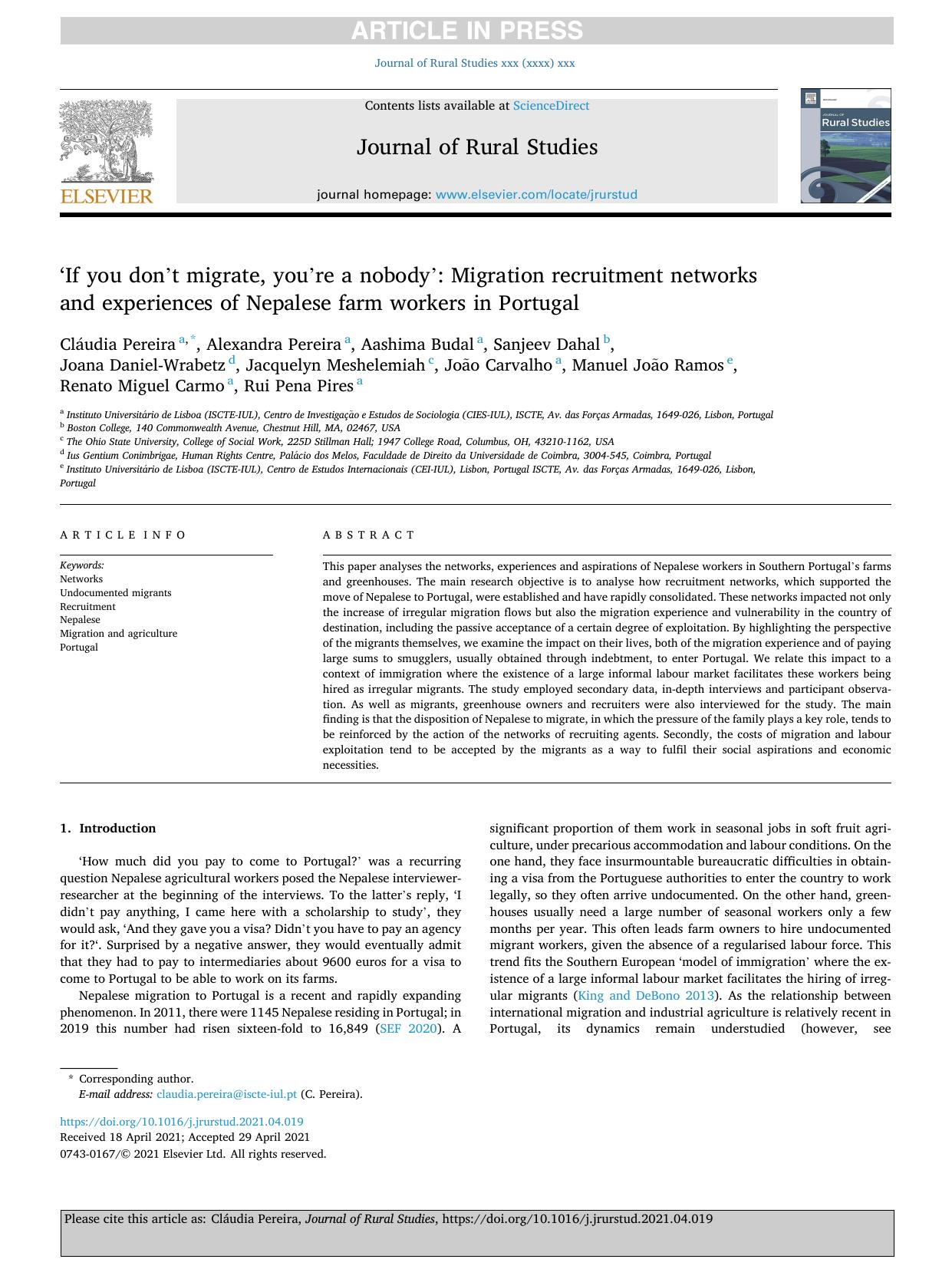
‘If you don't migrate, you're a nobody’: Migration recruitment networks and experiences of Nepalese farm workers in Portugal PDF
Preview ‘If you don't migrate, you're a nobody’: Migration recruitment networks and experiences of Nepalese farm workers in Portugal
Journal of Rural Studies, doi:10.1016/j.jrurstud.2021.04.019
This paper analyses the networks, experiences and aspirations of Nepalese workers in Southern Portugal's farms and greenhouses. The main research objective is to analyse how recruitment networks, which supported the move of Nepalese to Portugal, were established and have rapidly consolidated. These networks impacted not only the increase of irregular migration flows but also the migration experience and vulnerability in the country of destination, including the passive acceptance of a certain degree of exploitation. By highlighting the perspective of the migrants themselves, we examine the impact on their lives, both of the migration experience and of paying large sums to smugglers, usually obtained through indebtment, to enter Portugal. We relate this impact to a context of immigration where the existence of a large informal labour market facilitates these workers being hired as irregular migrants. The study employed secondary data, in-depth interviews and participant observation. As well as migrants, greenhouse owners and recruiters were also interviewed for the study. The main finding is that the disposition of Nepalese to migrate, in which the pressure of the family plays a key role, tends to be reinforced by the action of the networks of recruiting agents. Secondly, the costs of migration and labour exploitation tend to be accepted by the migrants as a way to fulfil their social aspirations and economic necessities.
